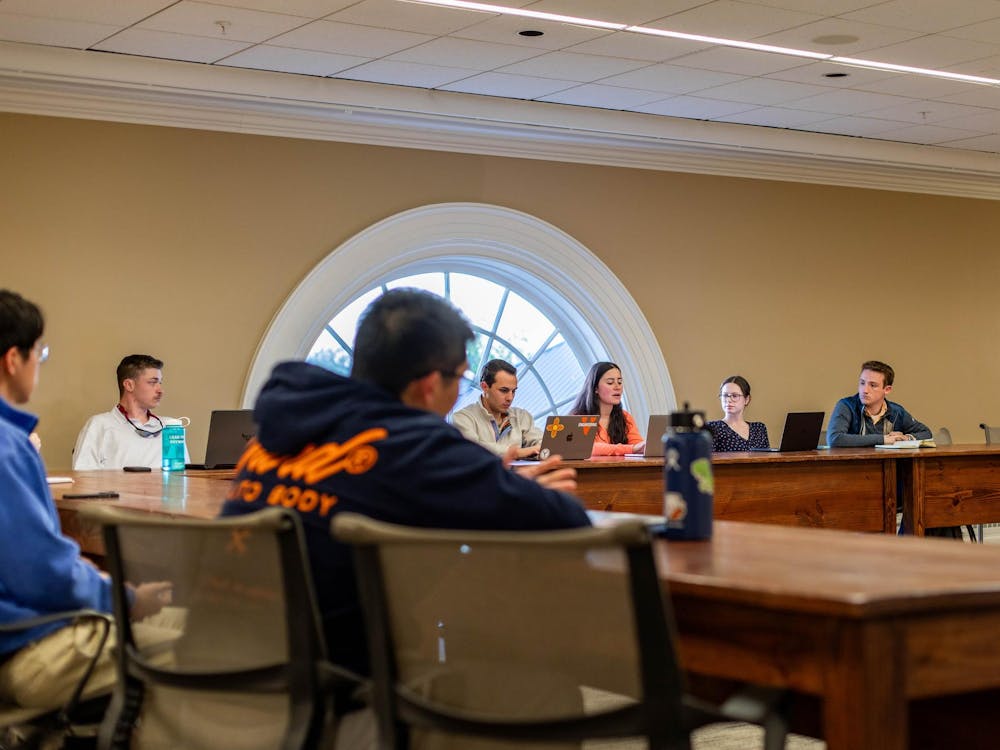The open honor trial announced last week will now be closed, as elected by the defendant earlier this week.
"This is a decision that the student made, so trying to speculate on why I really can't do," Honor Chair David Hobbs said.
The trial date will remain the same.
Last fall, another student opted for an open trial then closed it before the trial date.
"Most students from the beginning want a closed trial," Vice-Chair for Trials Stewart Ackerly said. "Usually once they request open [trials] they stick with open."
Hobbs said the only difference between open and closed trials are the availability of case information to the press and the opportunity for students to attend the trial.
The status of the trial can be changed up until the date it is scheduled to occur, Hobbs said.
"If the student decides they wanted to have [the trial] open in the next few days, we would have it open," he said.
The last open honor trial since 2002 took place last semester. In the case, third-year College students Joe Schlingbaum and Lindsey McClung were found not guilty of collaborating on a series of homework assignments for a political theory class during the spring semester of 2005.
"We had a large turnout and it allowed the University community to see the open process," Hobbs said.
As well as the forty-five tickets that would have been available at Newcomb Hall, the Honor Committee also planned on broadcasting the trial to the Commonwealth room to allow more students to attend.
"Open trials are a great forum for students to see the honor system work," Ackerly said. "We're planning a mock trial later this semester."
The Honor Committee processes about 30 trials per year. Ackerly said students have their own reasons for choosing the public or private status of their case.
"The best part about open trials is it gives every student a bird's eye view on the process of the honor committee," Ackerly said. "In closed trial there is so much privacy; most students like to keep it as small a group as possible."





